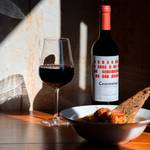
What alcoholic drinks to try while in Turkey?
The historic and cultural tour de force that is Turkey is not only rife with visual and architectural delights, but also home to a robust gastronomic culture, with alcoholic beverages that are unique, flavorful, and truly Turkish. This guide will take you through the fascinating realm of Turkish alcoholic beverages – their origins, rituals, and not-to-be-missed local entities that specialize in them.
1. Raki – The Iconic Turkish Spirit
Raki, simply put, is the signature alcoholic beverage of Turkey. Known endearingly as 'Aslan Sütü' (Lion's Milk), due to its milky appearance when mixed with water, this anise-flavored drink has high alcohol content, ranging from 40% to 50%.
The customary way to enjoy Raki is with chilled water and starters called ‘Meze’. In one of Istanbul's renowned Raki-serving taverns, Karadeniz Pide Ve Döner, you can savor Raki alongside traditional Turkish Mezes and live music. Remember, the drink is typically savored slowly, over long talks and meals, reinforcing its association with hospitality and good company.
2. Efes – The Popular Pilsener
If beer is your preferred choice of poison, then the iconic Efes Pilsener is a must-try. Named after the ancient city of Ephesus, Efes is Turkey's most popular beer brand. Lightly golden in color with a rich frothy head, its distinct, smooth, and malty flavor profile is just the perfect quencher for Turkey's warm summers.
Places like Taps Brewery, Bebek, not only serve Efes in a relaxed, friendly atmosphere but also offer a selection of locally-brewed beers.
3. Turkish Wines – The Ancient Elixir
Turkey has an ancient winemaking history dating back to the Hittite times. Today, the country is home to over 800 types of indigenous grapes, cultivating a diverse range of wines. The most notable varieties include the aromatic and full-bodied Kalecik Karası, the robust & dry Öküzgözü, and Narince, known for its crisp and floral whites.
To explore Turkish wines, head to Suvla, in Eceabat, renowned for its premium wines. If you are in Istanbul, Solini offers an extensive wine list, featuring the finest local wines, paired with gourmet dishes.
4. Şalgam Suyu – The Unconventional Choice
While technically not an alcoholic beverage, no discussion about Turkish beverages would be complete without mentioning Şalgam Suyu. It’s a spicy, sour, briny drink made from fermented purple carrots, turnips, and bulgur flour. While polarizing for its potent taste, it’s traditionally consumed with Raki.
The city of Adana is known as the home of Şalgam Suyu, with local producer Doganspor Şalgam being one of the most iconic brands to try.
5. Boza – The Historical Ferment
Boza is a slightly alcoholic, sweet winter drink made from fermented grains, usually millet. With a history that traces back to the Turkic people of Central Asia, it has a thick consistency and a subtly tart taste, typically enjoyed sprinkled with cinnamon and topped with roasted chickpeas.
The most famous place to try this historically significant drink is unquestionably Vefa Bozacısı in Istanbul, a shop that has been specializing in boza since 1876.
6. Meyhane Culture – The Traditional Tavern Experience
More than just places to drink, Turkish Meyhanes are essential social institutions. They combine good food, drinks, music, and company to create an undeniable charm that is integral to experiencing Turkish alcoholic beverages. Here, amidst the clinking of Raki glasses and traditional live music, the real essence of Turkish drinking culture can be discovered.
Şampiyon Kokoreç in Taksim, Istanbul, is recommended for its bustling, authentic meyhane atmosphere.
In conclusion, the alcoholic beverages of Turkey are as diverse and rich as its history and culture. Next time you find yourself in this beautiful country, be sure to sample some of these remarkable drinks and soak in the vibrant atmosphere of its traditional taverns. There's indeed no better way to celebrate the unique, captivating spirit of Turkey.





